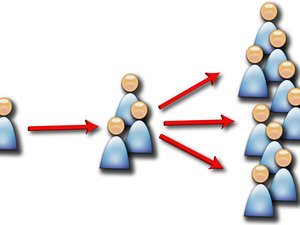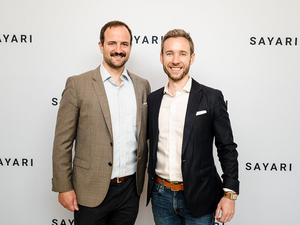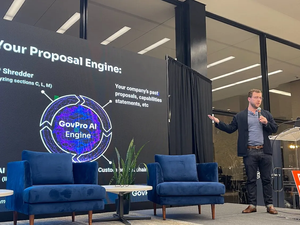
For public affairs professionals, delving into mind-numbing legislation that can run on for hundreds of pages and then summarizing it for their bosses is an oft-cited bane of the job.
But now Quorum Analytics Inc., a D.C. tech firm that builds public affairs software, is offering some relief to those glassy-eyed staffers: an artificial intelligence-powered tool that can summarize complex bills or regulations in mere seconds. It's called Quorum Copilot.
Quorum, founded in 2014, will formally unveil it along with a new suite of AI-powered tools at the Public Affairs Council's annual conference in Fort Lauderdale, Florida, on Tuesday, CEO Alex Wirth told me.
"Our focus with the launch of our AI Copilot is to make hard things easy and make new things possible," Wirth said ahead of the product's official unveiling.
One of the tools, Copilot Analyze, can sift through thousands of pages of text to produce insights and summaries based solely on the contents of the provided legislative bills. Those using Copilot Analyze can ask the tool questions about the given document via a chatbot interface, which can also access additional information to provide related results on the subjects and other items from the document.
"It lets you go in and do your job way, way faster so that you can start to get much more information versus having to go and read 120 pages of a bill and highlight the differences line by line," Wirth said. "Or if there's something in the bill that you don't know the answer to or want to know where to find [that information] somewhere else, you can ask it and then you'll get information back from it."
Another tool is Copilot Search, which aims to help professionals find more relevant information from government-related documents faster by automatically incorporating similar words and relevant filters upon submitting a query on Quorum's platform.
For instance, someone searching a document or looking for documents containing the word "drone" will also get results for "unmanned aerial vehicle," "UAV," "UAV licensing" and other related terms. It's part of Copilot Search's ability to recognize keywords on its own that it deems might be of relevance to the user.
Professionals can also ask questions like: "I'm looking for all press releases from Republican members of the Foreign Affairs Committee about Ukraine in the last month," and receive results in seconds, Wirth explained.
Quorum's other new AI tools can be used for email compilation, grassroots outreach efforts and searches for state policy landscape insights.
Wirth, one of the Washington Business Journal's 40 Under 40 honorees in 2024, said Quorum is using a combination of tech made in-house and from established tech giants to power these tools, though Wirth declined to name specific partners. He said in-house efforts are helping to build an internal Large Language Model or LLM, additional details for which will be shared in the future.
He said he's confident none of these products will lead to job elimination; rather he expects those who use Copilot's tools will be freed up to engage more with stakeholders. He also stressed that Copilot's work should be double-checked by humans.
"To be very clear, this is to help you do your job, not do the job for you," Wirth said. "The same way that if you were flying the plane, you would have a co-pilot."
Other startups like D.C-based GovPro AI and tech giants like Microsoft and Google are working to develop AI tools tailored for specific industries.
With its new tools, Quorum is targeting the 12,000 or so public affairs professionals who work in Greater Washington and have business on Capitol Hill, as well as the thousands of customers who use its software to track legislation and regulations at the state level.
Wirth declined to disclose Quorum's revenue figures. The company has about 400 employees following its fall 2022 acquisition of Capital Canary, a grassroots advocacy platform, in a deal that doubled its headcount. Wirth said about 34 employees are working on AI initiatives.



